Fritextsökning
Artiklar per år
Innehållstyper
-

Carl-Henrik Heldin ny rådgivare åt Rarity Bioscience
Rarity Bioscience får ett tungt tillskott till sitt vetenskapliga råd. Carl-Henrik Heldin, professor vid Uppsala universitet och tidigare styrelseordförande för Nobelstiftelsen, är ny extern rådgivare till bolaget.
-

Innovative start-up helps doctors, scientists and industry balance coagulation risks
For many doctors caring for seriously ill patients, for example, in stroke units and cancer wards, maintaining the life-saving balance between bleeding and thrombosis is an ongoing challenge. In the late 1980s, scientists at Maastricht University in the Netherlands developed an innovative method, the thrombin generation assay (TGA), which provides a complete overview of a physiological process crucial for maintaining normal haemostasis.
-

Carl Borrebaeck – professor and serial entrepreneur with a taste for speed
Award-winning cancer researcher, the founder of many listed companies, and constantly in the academic and commercial spotlight for decades. However, Carl Borrebaeck, Professor of Immunotechnology at Lund, is not yet satisfied. “We have a new, potentially super exciting project in the pipeline,” he says.
-
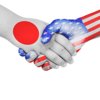
Japanskt pharmabolag gör mångmiljardförvärv i USA
Japanska Ono Pharmaceutical köper den amerikanska cancerläkemedelsutvecklaren Deciphera Pharmaceuticals i ett av årets hittills största förvärv i branschen.
-
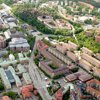
Forskningscenter stoppas på grund av brister – ”Väldigt allvarligt”
Forskning som bedrivs utan tillstånd. Bristande kvalitetssäkring. Personuppgifter som hanteras felaktigt. Kritiken mot arbetet på Center for Bionics and Pain Research (CBPR) i Göteborg är så allvarlig att forskningsplattformen nu läggs på is.
-

Samuel Lagercrantz: ”Will the Swedish life science strategy be updated with precision?”
What will the Swedish government focus on in the life science strategy that is being updated? And what should be prioritized in the strategy? Life Science Sweden's editor-in-chief Samuel Lagercrantz highlights three areas.
-

To build trust, one must be able to say “I don’t know” – whether human or AI
Will AI strengthen or break down trust? It depends on whether we can understand and accept its limitations, and our own, writes Sarah Lidé in a column.
-
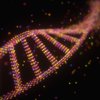
Business Sweden: “Companies have a lot to offer in data-driven precision medicine”
Data-driven precision medicine can potentially solve major healthcare problems, states Business Sweden in a new report on the subject.
-

Så ska nya Alzheimerbehandlingen nå patient: ”Vi har några utmaningar”
Stora medicinska framsteg har nyligen gjorts inom Alzheimerfältet - men hur ska de nya behandlingarna nå rätt patienter, och i rätt tid? ”Det kräver att vi tänker i nya banor”, sa Linus Jönsson, professor i hälsoekonomi vid Karolinska institutet, när han talade vid eventet Pharma Outsourcing på tisdagen.
-

Svenska Olink köps av amerikansk life science-jätte
34 miljarder. Så mycket har amerikanska Thermo Fischer betalat för Uppsalabolaget Olink. Ett besked som fått aktien att rusa.
-

The physician at the tech giant: “Observations in the emergency room made my mind up”
When Nasim Farrokhnia was in third grade at school in Tehran, the capital of Iran, her father gave her a book about Marie Curie, which soon became her favourite book. Perhaps her interest in science was born there and then, as science and new technology have since been a constant feature of her working life. Today, she is a Healthcare Manager in Microsoft’s Western Europe team.
-

Marie Gårdmark: ”The situation is not satisfactory”
”The legislative tool-box is limited, but carrots in the form of longer exclusivity has already proven successful, this has for example increased registration of new products in rare diseases. But will it also work to increase access for all EU patients
-
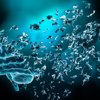
Första läkemedlen som bromsar Alzheimers – men vad betyder det för patienterna?
Nya behandlingar för tidig Alzheimers sjukdom väcker hopp hos tusentals patienter och anhöriga. Men vem ska få behandlingen, hur ska rätt patienter hittas i tid – och kommer sjukvårdens resurser att räcka till? Life Science Sweden har talat med svenska Alzheimerforskare som uttrycker försiktigt hopp, men också ser fortsatta utmaningar.
-

Samuel Lagercrantz: A special kind of hellishness afflicts post-COVID patients
In addition to the disease itself those suffering from post-COVID have to deal with people who try to label them as hypochondriacs, writes Samuel Lagercrantz in an editorial.
-

Life Science Sweden heads to the Oresund region! ‒ Hello there Michael Linnell
Life Science Sweden’s The Future of Swedish Danish Life Science and New Updates in Drug Formulation & Bioavailability meetings are coming up soon. We asked Michael Linnell, project manager for Life Science Sweden’s event portfolio, a few short questions.
-

Studie dissar samband mellan depression och cancer
Depression och oro ökar inte risken för att utveckla de flesta typer av cancer, enligt en ny metastudie.
-

Behandling för svår nervsjukdom EU-godkänns för unga
Astra Zenecas läkemedel Soliris har fått klartecken av EU-kommissionen och blir därmed den första godkända, riktade behandlingen för barn och ungdomar med den sällsynta neuromuskulära sjukdomen myastenia gravis.
-

The Swedish Life Science Office: “We lost in both coordination and manpower”
Since the turn of the year, the Swedish government’s life science office has operated at a lower capacity. Life Science Sweden has spoken to Pontus Holm, Departmental Secretary at the office, about the ongoing work.
-
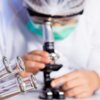
Eurocine ska fylla på kassan med nyemission
Forskningsbolaget Eurocine Vaccines har beslutat om en företrädesemission som kan ge bolaget upp till 9,7 miljoner kronor. Samtidigt pågår en strategisk översyn av bolagets verksamhet.
-

Life science-kontoret: ”Vi tappade i både koordinering och arbetskraft”
Sedan årsskiftet har regeringens life science-kontor jobbat med lägre kapacitet. Life Science Sweden har pratat med Pontus Holm, departementssekreterare på kontoret, om det pågående arbetet.
-

Astra Zeneca får ny Nordenchef
-
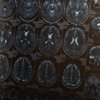
Negativa signaler om Alzheimerläkemedlet lecanemab i Europa: "Inte värdefullt nog"
Experter i Europa inom Alzheimers sjukdom uppger att förmågan hos Bioarctics lecanemab att bromsa sjukdomsförloppet möjligen inte uppväger hälsoriskerna med behandlingen och ifrågasätter om lecanemab är värd att satsa på med tanke på knappa hälsovårdsresurser. Det skriver nyhetsbyrån Reuters.
-

Samuel Lagercrantz: The government’s performance in healthcare and life sciences so far
Since the change of government in Sweden, developments in the healthcare sector have shown promising signs, but the outlook in life sciences is less promising, writes Samuel Lagercrantz in an editorial.
-

Study: Chat GPT is more empathetic than doctors
The AI tool Chat GPT is not only more accurate when it comes to answering patient questions – the chatbot is also perceived as almost 10 times more empathetic than real doctors, a new study reveals.